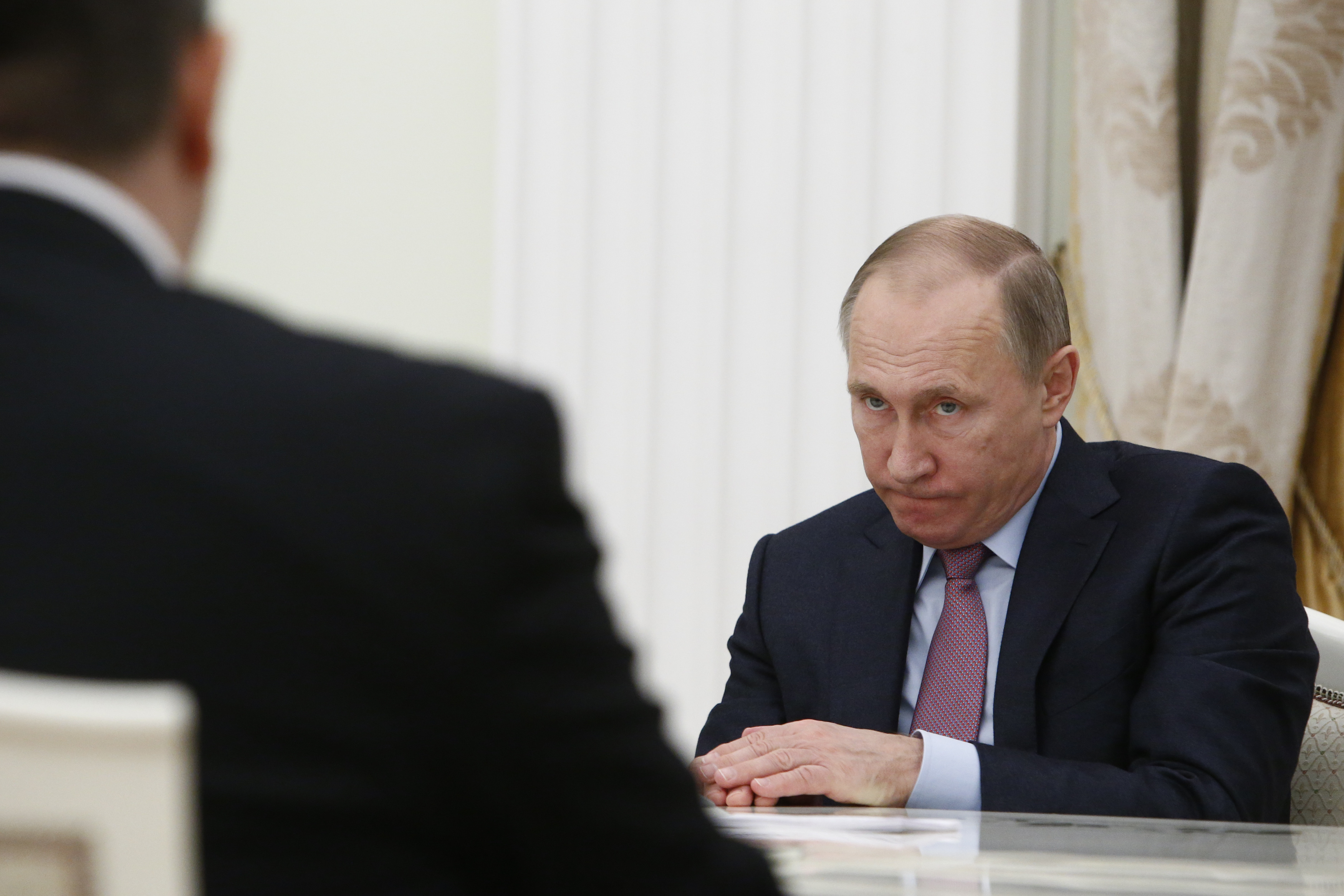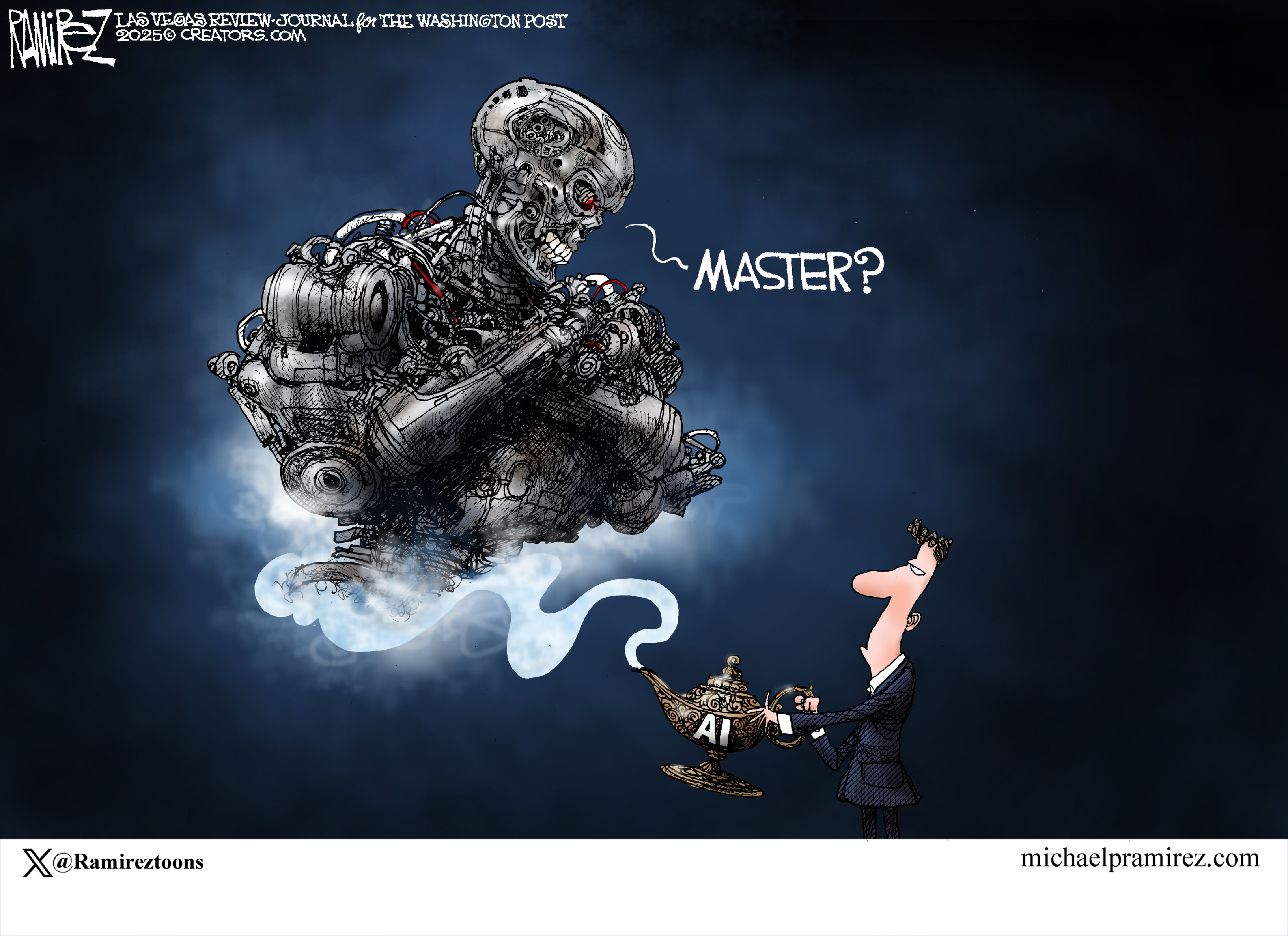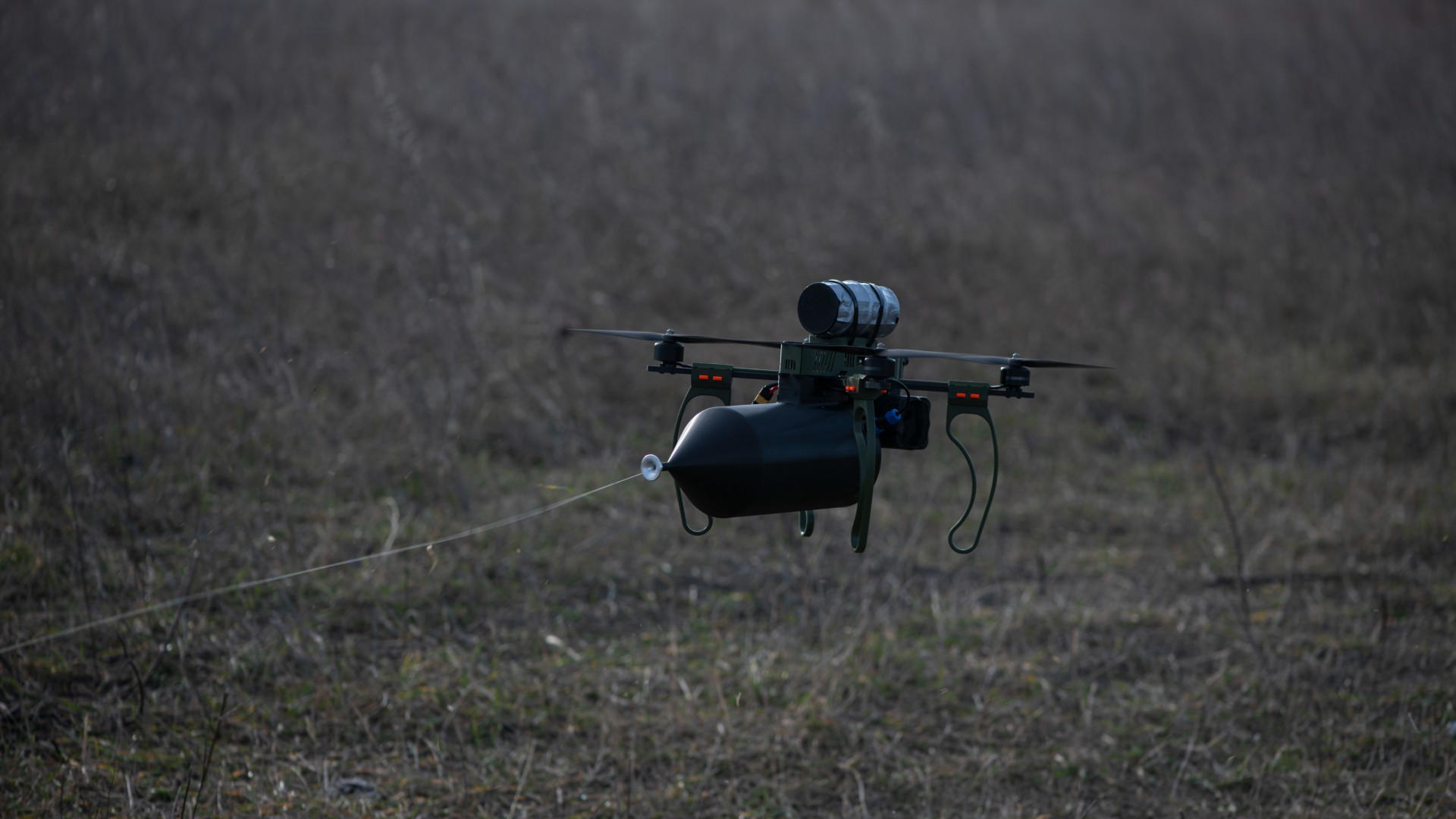Why liberals need to get a grip on Russia
Let's not start another Cold War over campaign hacking


If Donald Trump governs in as pro-Russia a fashion as his statements thus far indicate, Vladimir Putin's interference in the 2016 election must be considered one of the great achievements in espionage. All he had to do was one (probably pretty easy) hacking job, and convince one elderly political operative to click on a phishing link — apparently with the accidental assistance of an aide who is confused about how English prefixes work — and trickle the acquired data out over time. He might well have helped install a favorable president, who will then remove anti-Russia sanctions, for a few thousand bucks in labor and server costs.
This has become something of a fixation for many liberals, who see Trump's election as mainly the responsibility of Russian spying. And while it is unquestionably important to investigate what happened, and counter any attempts to undermine America's democratic institutions, it's also important not to lose all perspective. Russia is a rickety-at-best world power, and got extremely lucky. There is no need to start another Cold War.
So first, unlike the times when the CIA violently overthrew democratically-elected leaders in other countries, Trump was not literally installed by Putin. YouGov finds that 50 percent of Hillary Clinton voters believe that Putin tampered with the vote count to help Trump — which would mean an actual mechanical breakdown of America's democratic machinery. But there is no evidence whatsoever to suggest this actually happened. It was a devious piece of propaganda, not election theft.
Subscribe to The Week
Escape your echo chamber. Get the facts behind the news, plus analysis from multiple perspectives.

Sign up for The Week's Free Newsletters
From our morning news briefing to a weekly Good News Newsletter, get the best of The Week delivered directly to your inbox.
From our morning news briefing to a weekly Good News Newsletter, get the best of The Week delivered directly to your inbox.
Second, the specific tactics of the Russia hack would not have worked nearly so well against virtually any other candidate. Clinton's secretive nature, transgression of ethical standards, and atrocious relationship with the press makes her almost uniquely scandal-prone, and the centrist political press has long been absolutely incapable of covering the Clintons at all fairly. Chris Cillizza wrote roughly Avogadro's number of grossly irresponsible articles every time there was some minor development coming from the hacks, but without that he would have found something else to write similar articles about, depend upon it.
That's partly Clinton's fault and partly the fault of the broken political press in this country. But more important where Russia is concerned, it wouldn't have happened to virtually any other Democrat to the same degree. No doubt there would have been some scandal and many stories if the emails of Bernie Sanders, or Elizabeth Warren, or Martin O'Malley had been hacked. But it's highly unlikely that it would have dominated half the campaign.
This ties into a another factor enabling Putin's success — Clinton's unpopularity. The hacks might plausibly have moved the vote a point or so Trump's way. But that wouldn't have mattered if her approval rating hadn't been so terrible in the first place — something that was clearly established by late 2015, long before the hacks took place. Putin was able to tip the balance to horrendously-unpopular Trump in part because the Democrats nominated the least-popular presidential candidate since the advent of regular polling (with the exception of Trump himself). Barack Obama would have easily been able to absorb such attacks.
So yes, Vladimir Putin, a quasi-dictator whose political opponents routinely end up murdered, was through a combination of clever espionage and extremely good luck perhaps 5 to 10 percent of the reason why Trump was able to win by a whisker. That is a real crisis — but a limited one.
With all due respect to Molly McKew, Russia is fairly strong, but it is not remotely in the same league as the United States. Its per capita GDP is less than half that of the U.S., and much of that is the result of fossil fuels, which typically accounts for around 10-20 percent of the total economy and over half of government revenue. Growth has basically stalled since the oil price collapse of 2014.
Now, Trump's election will no doubt be a temporary boon in that department, if his selection of ExxonMobil CEO Rex Tillerson to be Secretary of State is any judge. His company has a ton of assets in Russia that are locked up by American sanctions.
But even that is a double-edged sword, as an expansion of oil development is likely to come at the expense of a more diversified economy. Petrostates are doomed in the long run, hemmed in by slowly-advancing climate change regulations on one side and the galloping advance of renewables on the other. Russia's major export market, the European Union (which is incidentally economically strangled by an unworkable currency area), would like nothing more than to curtail its reliance on Russian oil and gas, and they are working to achieve that.
The important thing, as in so many other foreign policy questions, is not to flip out and flail around. Putin is meddling all over the place, but the way to respond is with wise diplomacy. And that in turn means beating Republicans at the polls, the first step towards which will be avoiding the disastrous political miscalculations that allowed Putin to tip the electoral scales in the first place.
A free daily email with the biggest news stories of the day – and the best features from TheWeek.com
Ryan Cooper is a national correspondent at TheWeek.com. His work has appeared in the Washington Monthly, The New Republic, and the Washington Post.
-
 June 29 editorial cartoons
June 29 editorial cartoonsCartoons Sunday's political cartoons include the AI genie, Iran saving face, and bad language bombs
-
 A tall ship adventure in the Mediterranean
A tall ship adventure in the MediterraneanThe Week Recommends Sailing aboard this schooner and exploring Portugal, Spain and Monaco is a 'magical' experience
-
 How drone warfare works
How drone warfare worksThe Explainer From Ukraine to Iran, it has become clear that unmanned aircraft are rapidly revolutionising modern warfare
-
 The JFK files: the truth at last?
The JFK files: the truth at last?In The Spotlight More than 64,000 previously classified documents relating the 1963 assassination of John F. Kennedy have been released by the Trump administration
-
 'Seriously, not literally': how should the world take Donald Trump?
'Seriously, not literally': how should the world take Donald Trump?Today's big question White House rhetoric and reality look likely to become increasingly blurred
-
 Will Trump's 'madman' strategy pay off?
Will Trump's 'madman' strategy pay off?Today's Big Question Incoming US president likes to seem unpredictable but, this time round, world leaders could be wise to his playbook
-
 Democrats vs. Republicans: who are the billionaires backing?
Democrats vs. Republicans: who are the billionaires backing?The Explainer Younger tech titans join 'boys' club throwing money and support' behind President Trump, while older plutocrats quietly rebuke new administration
-
 US election: where things stand with one week to go
US election: where things stand with one week to goThe Explainer Harris' lead in the polls has been narrowing in Trump's favour, but her campaign remains 'cautiously optimistic'
-
 Is Trump okay?
Is Trump okay?Today's Big Question Former president's mental fitness and alleged cognitive decline firmly back in the spotlight after 'bizarre' town hall event
-
 The life and times of Kamala Harris
The life and times of Kamala HarrisThe Explainer The vice-president is narrowly leading the race to become the next US president. How did she get to where she is now?
-
 Will 'weirdly civil' VP debate move dial in US election?
Will 'weirdly civil' VP debate move dial in US election?Today's Big Question 'Diametrically opposed' candidates showed 'a lot of commonality' on some issues, but offered competing visions for America's future and democracy
